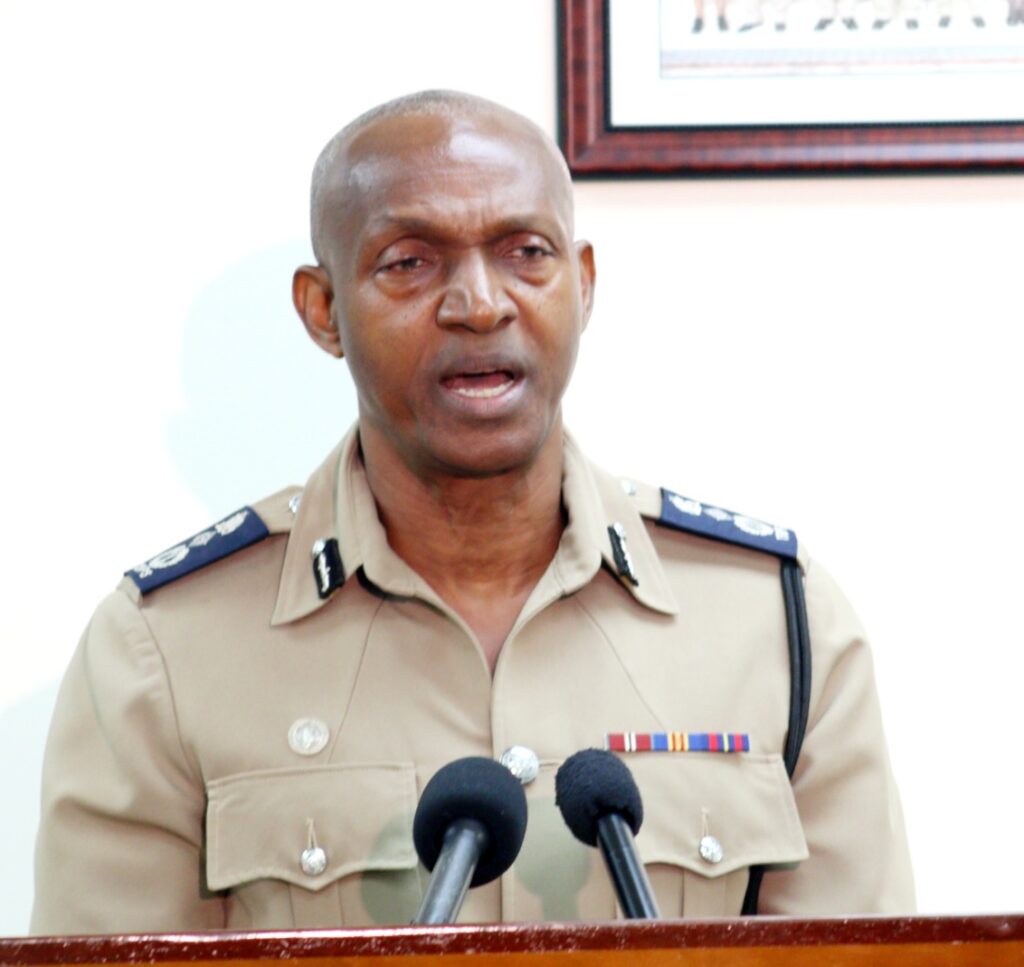A Black woman’s harrowing account of racial abuse in which she was told “leave, n****” has prompted Prime Minister Mia Mottley to vow sweeping reforms as part of a national reckoning on systemic racism in Barbados.
At a St Michael Parish Speaks town hall meeting at Solidarity House on Monday evening, the tearful testimony of Lower Burney resident Natasha Prentice being called a racial slur and experiences of discrimination in public spaces and by police galvanised attendees and renewed calls for justice and equality across the island.
Prentice’s voice trembled as she described her treatment in a store where she was subjected to racial slurs by a male store owner. “When I was leaving . . . [he said] , ‘Yes, leave, n****.’ Up to now, I can’t believe that I got called a n****,” she said, her pain resonating across the room. “I didn’t even know how to respond to that.”
Her ordeal continued when she sought justice at the police station.
“The law, I’m afraid to say, is biased,” Prentice said. “I went to the police station angry, of course, because of what was said to me. When I got there, the officer asked the gentleman: ‘Would you like her to stop coming into your store?’ I couldn’t understand what was happening.”
Her disbelief at the officer’s lack of support was palpable. “I felt like the criminal, not the victim,” she added.
Prentice also raised the wider implications of racism, recounting how it permeates every aspect of life.
“It’s in housing, it’s in employment—it’s everywhere. This is what it feels like to be judged for something you cannot change,” she said.
Mottley condemned the incidents and committed to systemic reforms.
She said: “Natasha, what you have experienced is completely unacceptable. I want you to know that your government stands with you and others like you.”
The PM promised immediate steps to combat racism, not only in policing but across the broader society.
Mottley added: “We need to ensure that anyone practising racism or misogyny is held accountable, whether they are a private individual or an institution.
She declared her administration was committed to introducing robust anti-discrimination legislation, though details were not given. She called for the establishment of a Human Rights Commission and greater education to foster inclusivity.
Addressing the role of law enforcement in Prentice’s case, the prime minister acknowledged the need for reform.
“We must do better in training our officers to handle these situations with fairness and justice. What happened to Natasha cannot happen again,” she declared.
Mottley also reflected on the broader societal changes required to dismantle systemic racism.
“This is not just about fixing a system—it’s about changing mindsets. And that begins with honest conversations like the one we are having tonight,” she said.
Prentice’s testimony has reignited conversations about racial equity in Barbados. “I just want to feel like I matter,” the Lower Burney woman said. “People like me are not invisible. We have voices, and we will keep using them until we are treated equally.”
Mottley called for national unity and action.
“Each of us must take responsibility for breaking down the barriers of discrimination,” she said. “It’s not just a government issue—it’s a societal one. Together, we must build a Barbados rooted in respect, equality, and justice for all.”
Almost 200 years since the formal end of slavery, Barbados does not currently have a specific legal definition of racial discrimination nor extensive anti-discrimination laws. There has been much public debate regarding proposed anti-discrimination legislation that aims to protect individuals from discriminatory actions by private entities.
The Public Order Act of 1970, passed at the height of public demonstrations by the Black Power Movement, outlaws the incitement to racial hatred through publications and using “threatening, abusive or insulting” language in a public place or at a public meeting. A magistrate can convict an offender and impose a fine of $2 500 or a year of imprisonment. A widely published case of incitement to racial hatred brought before the magistrates’ court dates back 20 years.
Workplace discrimination based on race is outlawed in the Employment (Prevention of Discrimination) Act of 2020. (RG)
The post Mottley vows action after woman’s racial abuse sparks outcry appeared first on Barbados Today.


